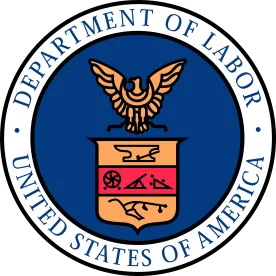The US Department of Labor (DOL) has issued a number of publications offering guidance to the states for implementing certain federal unemployment insurance provisions contained in the Coronavirus Aid, Relief, and Economic Security Act (CARES Act), including the Pandemic Unemployment Assistance (PUA), Federal Pandemic Unemployment Compensation (FPUC), and Pandemic Emergency Unemployment Compensation (PEUC) programs. As previously discussed here, these provisions of the CARES Act provide up to 39 weeks of unemployment benefits and a $600 per week federally-funded additional benefit for eligible individuals, which includes individuals who are not typically covered by state unemployment programs, such as self-employed individuals, independent contractors, and gig workers, as well as those who do not have sufficient work history to qualify for state unemployment benefits.
The initial guidance, issued on April 2, 2020, is the first of several Unemployment Insurance Program Letters (UIPL); it focuses on state staffing and the implementation of state and federal unemployment benefits during this unprecedented time. As stated by Secretary of Labor Eugene Scalia, “The [DOL] is offering guidance and support so that States can provide benefits quickly while protecting the integrity of the unemployment insurance system.” This initial guidance and the subsequent UIPLs note the important role of the states in preventing fraud and ensuring that only eligible individuals receive benefits; however, it also sets forth that the CARES Act includes an appropriation of $26 million to be used by the DOL to carry out audits, investigations and other oversight activities related to states’ adherence to existing unemployment insurance laws and policies. Additionally, the initial guidance and subsequent UIPLs make clear that the CARES Act and related benefits apply only to individuals who are no longer able to work due to COVID-19 related reasons through no fault of the own. Significantly, individuals who quit their jobs without good cause to obtain additional benefits would be committing fraud and, if that occurs, the individual is ineligible for any additional benefit payments, must pay back the benefits and is subject to federal prosecution.
The DOL’s second UIPL, issued on April 4, 2020, provides states with guidance for the FPUC program and, specifically, for the administration of the additional $600 federally-funded weekly benefit to eligible individuals through July 31, 2020. Eligible individuals are those receiving unemployment compensation under state programs and extended federal programs. States will decide eligibility for FPUC based on eligibility for the underlying program, meaning that individuals do not have to separately apply for FPUC.
On April 5, 2020, the DOL published another UIPL providing states with guidance in implementing the PUA program, including program eligibility for individuals not typically covered by unemployment insurance, including self-employed individuals, independent contractors, gig workers, and persons with insufficient work history who would not qualify for state unemployment benefits, each of whom are unemployed due to COVID-19 related circumstances. The guidance also includes direction as to those who are not eligible for PUA, that is, individuals who have the ability to telework with pay or who are receiving paid sick leave or other paid leave benefits. The guidance reiterates qualifying COVID-19 related circumstances for PUA eligibility, which can extend for up to 39 weeks of benefits; however, it also provides that many of the qualifying circumstances are likely to be of short-term duration. For example, an individual who has been advised to self-quarantine by a health care provider because of the individual’s exposure to a person who has tested positive for the coronavirus, and is therefore unable to reach his or her place of employment, may be able to return to his or her place of employment within two weeks of the exposure if he or she does not exhibit symptoms of COVID-19 or test positive for the coronavirus.
One notable area of inconsistency exists between the benefits under the FPUC and PUA programs. The statutory language and guidance issued to date suggests that in order to receive the $600 weekly pandemic supplement under the FPUC program, an individual must qualify for at least $1 in state unemployment benefits. The PUA program, however, indicates that benefits are available to persons who are “not eligible for regular compensation or extended benefits under State or Federal law,” including those who self-certify that they “do[] not have sufficient work history, or otherwise would not qualify for regular unemployment or extended benefits under State or Federal law…” The PUA program language states that, in that case, the amount of available assistance includes the minimum state weekly benefit plus the $600 weekly pandemic supplement, suggesting that an individual need not qualify for or receive any state unemployment benefits but still remains eligible to receive not only the minimum weekly benefit amount under state law, but also the supplemental pandemic benefit.
The guidance thus far demonstrates the involvement of the DOL in the states’ implementation of federal unemployment programs and allotment of federal funds during the COVID-19 pandemic. However, despite the DOL’s considerable efforts to provide clarifications and guidance under the CARES Act, many questions remain. We will continue to provide relevant updates as they become available.






 />i
/>i

